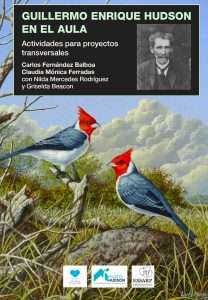The label ‘Anglo-Argentine literature’ is used here to define a third place where cultures meet and where the word ‘Anglo’ refers to the English language, used as the medium of expression to write factual or fictional accounts on Argentina, irrespective of the national origin of the writer.
Therefore, travel writing in English (whether fact, fiction of faction) falls within this category, as do any literary texts written in English about Argentina. On the other hand, writers like Rodolfo Walsh, Benito Lynch or Carlos Feiling, all ‘Anglo-Argentine’ by birth, are not included within this body of work because they write in Spanish, though any intertextual study would certainly profit from their inclusion.
Extract from the journal of Jane Robson, a Scottish immigrant who settled in Cañuelas and then in the Chascomús area in 1825.
Worksheet on the hardships immigrants had to face (for teenagers and adults). (Download pdf)
Novel by Susan Wilkinson.
Bi-multi-plurilingualism, interculturality and identity
Selected papers from the 38th FAAPI Conference. Buenos Aires: APIBA.
Edited by Laura Renart (Asociación de Profesores de Inglés de Buenos Aires APIBA, FAAPI 2013 Organising Association), Darío Luis Banegas (Asociación de Profesores de Inglés de Zona Andina y Línea Sur APIZALS). (Download pdf)
 Carlos Fernández Balboa and Claudia Mónica Ferradas (eds.) with Nilda Mercedes Rodríguez and Griselda Beacon.
Carlos Fernández Balboa and Claudia Mónica Ferradas (eds.) with Nilda Mercedes Rodríguez and Griselda Beacon.
Resources in Spanish and English for teachers at primary and secondary level.
Ideas and materials to integrate different subject areas in cross-curricular projects based on William Henry Hudson’s life and works.
– Download pdf
– Watch video for activity 3, “Learning from objects”, pages 108-111
… I failed to make you see
that where I come from we play other games
or bend the rules,
that rules don’t travel well,
that a conker will crack inside a drawer,
(a sad dry carcass torn hopelessly into two)
so far from where you live,
from where it fell.
From: “Culture Clash” (2019)
